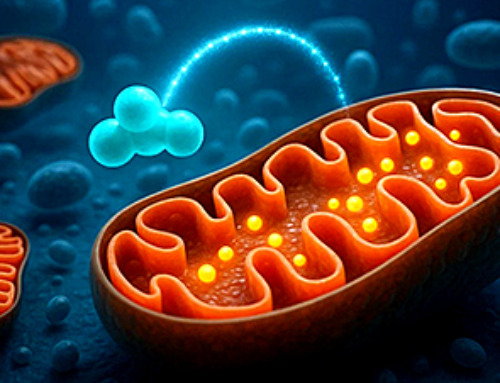Teenage girls’ brains may have prematurely aged by up to four years during the Covid pandemic, an American study suggests.
Adolescent boys weren’t immune either with their brain’s also showing signs of undue wear and tear, albeit by only one-and-a-half years.
Experts suggested the difference was due to lockdown‘s social restrictions having a disproportionate impact on teenage girls.
Researchers from the University of Washington looked at 160 MRI scans taken from a cohort of 9-to-17-year-olds collected in 2018, and then compared these to scans to 130 taken post-pandemic, 2021-2022.
They found a process called cortical thinning — where the organ effectively rewires itself between childhood and adolescence — was far more advanced than it should be amongst pandemic teens.
Teenage girls’ brains (left) may have prematurely aged by up to four years during the Covid pandemic, an American study suggests. Adolescent boys weren’t immune either with their brain’s also showing signs of undue wear and tear, albeit by only one-and-a-half years (right)
Whilst cortical thinning does occur naturally some studies have linked accelerated thinning to being exposed to anxiety or stress and greater risk of developing these disorders in life.
It’s not yet clear if the observed advanced thinning is permanent or if it will have any negative impact on teenagers’ long-term health or educational aspirations.
The study, published in the journal Proceedings of the National Academy of Sciences, also found differences in which parts of the brain were ageing in boys and girls.
For example, while both sexes had advanced ageing in the part of the organ related to processing visual information, girls also saw premature thinning of areas linked to emotions, interpreting faces and understanding language.
These are all areas critical to facilitating effective communication.
Study author Professor Patricia Kuhl, an expert in learning and brain sciences at Washington, said researchers had been shocked at the extent of the difference between boys and girls.
She told the New York Times ‘a girl who came in at 11, and then returned to the lab at age 14, now has a brain that looks like an 18-year-old’s;.
Professor Khul also told the Guardian that she believes part of the difference reflects teenage girls’ greater reliance on social groups than their male counterparts.
‘Girls chat endlessly and share their emotions. They are much more dependent on the social scene for their wellbeing and for their healthy neural, physical and emotional development.’
She added the findings were ‘reminder of the fragility of teens’ and suggested parents find the time to talk to their children about their experiences of the Covid pandemic.
‘It’s important they invite their teens for a coffee, for a tea, for a walk, to open the door to conversation. Whatever it takes to get them to open up.’
The study is the latest to suggest the Covid pandemic, and by extent the lockdown restrictions that separated family and friends for months, took a toll on young’s people’s mental health.
However, some experts have cautioned against the over-interpretation of the study’s findings.
Dr Bradley S. Peterson, a peadiatric psychiatrist and brain researcher at Children’s Hospital Los Angeles, who was not involved in the study was among these.
He noted a number of limitations, one of which is that though the authors were keen to link the changes to the social isolation of lockdowns other possibilities exist such as increased screen-time and use of social media and less exercise.
Dr Peterson also said that the observed thinning may not be a bad thing and it could ‘represent nature’s adaptive response in the brain that conferred greater emotional, cognitive and social resilience’.
News
Breakthrough Drug Restores Vision: Researchers Successfully Reverse Retinal Damage
Blocking the PROX1 protein allowed KAIST researchers to regenerate damaged retinas and restore vision in mice. Vision is one of the most important human senses, yet more than 300 million people around the world are at [...]
Differentiating cancerous and healthy cells through motion analysis
Researchers from Tokyo Metropolitan University have found that the motion of unlabeled cells can be used to tell whether they are cancerous or healthy. They observed malignant fibrosarcoma cells and [...]
This Tiny Cellular Gate Could Be the Key to Curing Cancer – And Regrowing Hair
After more than five decades of mystery, scientists have finally unveiled the detailed structure and function of a long-theorized molecular machine in our mitochondria — the mitochondrial pyruvate carrier. This microscopic gatekeeper controls how [...]
Unlocking Vision’s Secrets: Researchers Reveal 3D Structure of Key Eye Protein
Researchers have uncovered the 3D structure of RBP3, a key protein in vision, revealing how it transports retinoids and fatty acids and how its dysfunction may lead to retinal diseases. Proteins play a critical [...]
5 Key Facts About Nanoplastics and How They Affect the Human Body
Nanoplastics are typically defined as plastic particles smaller than 1000 nanometers. These particles are increasingly being detected in human tissues: they can bypass biological barriers, accumulate in organs, and may influence health in ways [...]
Measles Is Back: Doctors Warn of Dangerous Surge Across the U.S.
Parents are encouraged to contact their pediatrician if their child has been exposed to measles or is showing symptoms. Pediatric infectious disease experts are emphasizing the critical importance of measles vaccination, as the highly [...]
AI at the Speed of Light: How Silicon Photonics Are Reinventing Hardware
A cutting-edge AI acceleration platform powered by light rather than electricity could revolutionize how AI is trained and deployed. Using photonic integrated circuits made from advanced III-V semiconductors, researchers have developed a system that vastly [...]
A Grain of Brain, 523 Million Synapses, Most Complicated Neuroscience Experiment Ever Attempted
A team of over 150 scientists has achieved what once seemed impossible: a complete wiring and activity map of a tiny section of a mammalian brain. This feat, part of the MICrONS Project, rivals [...]
The Secret “Radar” Bacteria Use To Outsmart Their Enemies
A chemical radar allows bacteria to sense and eliminate predators. Investigating how microorganisms communicate deepens our understanding of the complex ecological interactions that shape our environment is an area of key focus for the [...]
Psychologists explore ethical issues associated with human-AI relationships
It's becoming increasingly commonplace for people to develop intimate, long-term relationships with artificial intelligence (AI) technologies. At their extreme, people have "married" their AI companions in non-legally binding ceremonies, and at least two people [...]
When You Lose Weight, Where Does It Actually Go?
Most health professionals lack a clear understanding of how body fat is lost, often subscribing to misconceptions like fat converting to energy or muscle. The truth is, fat is actually broken down into carbon [...]
How Everyday Plastics Quietly Turn Into DNA-Damaging Nanoparticles
The same unique structure that makes plastic so versatile also makes it susceptible to breaking down into harmful micro- and nanoscale particles. The world is saturated with trillions of microscopic and nanoscopic plastic particles, some smaller [...]
AI Outperforms Physicians in Real-World Urgent Care Decisions, Study Finds
The study, conducted at the virtual urgent care clinic Cedars-Sinai Connect in LA, compared recommendations given in about 500 visits of adult patients with relatively common symptoms – respiratory, urinary, eye, vaginal and dental. [...]
Challenging the Big Bang: A Multi-Singularity Origin for the Universe
In a study published in the journal Classical and Quantum Gravity, Dr. Richard Lieu, a physics professor at The University of Alabama in Huntsville (UAH), which is a part of The University of Alabama System, suggests that [...]
New drug restores vision by regenerating retinal nerves
Vision is one of the most crucial human senses, yet over 300 million people worldwide are at risk of vision loss due to various retinal diseases. While recent advancements in retinal disease treatments have [...]
Shingles vaccine cuts dementia risk by 20%, new study shows
A shingles shot may do more than prevent rash — it could help shield the aging brain from dementia, according to a landmark study using real-world data from the UK. A routine vaccine could [...]






















